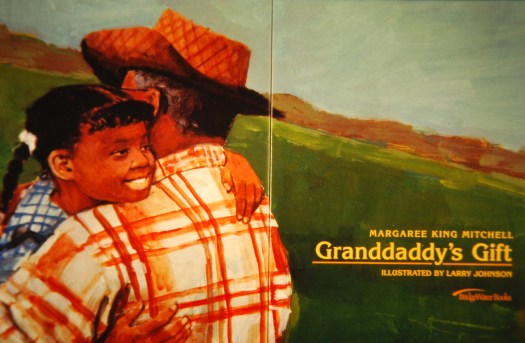President Obama has issued a proclamation naming June as African American Music Appreciation Month. Now is a great time to teach children about the contributions to music made by people of color.

When Grandmama Sings tells one such story. Set in the 1940’s, Belle is going to spend the summer touring the South with her grandmother and a swing jazz band. Belle has never been outside Pecan Flats, Mississippi. And she can’t wait to go on the road with Grandmama. There are so many new things to see on their travels through the Deep South. But some things aren’t new. Everything is segregated, just like at home. But Grandmama stands up for what’s right.
At the end of the tour, Grandmama says, “Belle, tonight was special. I could feel all of those folks with me. I want us to feel this way all the time. I want to sing in a place where black people and white people aren’t kept apart. That’s the kind of world I want for you.”
President Obama’s official proclamation is below:
A vital part of our Nation’s proud heritage, African-American music exemplifies the creative spirit at the heart of American identity and is among the most innovative and powerful art the world has ever known. It accompanies us in our daily lives, and it has rung out at turning points in our history and demonstrated how our achievements as a culture go hand-in-hand with our progress as a Nation.
During African-American Music Appreciation Month, we honor the artists who, through this music, bring us together, show us a true reflection of ourselves, and inspire us to reach for the harmony that lies beyond our toughest struggles.
Songs by African-American musicians span the breadth of the human experience and resonate in every corner of our nation — animating our bodies, stimulating our imaginations, and nourishing our souls. In the ways they transform real stories about real people into art, these artists speak to universal human emotion and the restlessness that stirs within us all. African-American music helps us imagine a better world, and it offers hope that we will get there together.

This month, we celebrate the music that reminds us that our growth as a Nation and as people is reflected in our capacity to create great works of art. Let us recognize the performers behind this incredible music, which has compelled us to stand up — to dance, to express our faith through song, to march against injustice, and to defend our country’s enduring promise of freedom and opportunity for all.
Now, therefore, I, Barack Obama, President of the United States of America, by virtue of the authority vested in me by the Constitution and the laws of the United States, do hereby proclaim June 2016 as African-American Music Appreciation Month.

I call upon public officials, educators, and all the people of the United States to observe this month with appropriate activities and programs that raise awareness and foster appreciation of music that is composed, arranged, or performed by African-Americans.
In witness whereof, I have hereunto set my hand this thirty-first day of May, in the year of our Lord two thousand sixteen, and of the Independence of the United States of America the two hundred and fortieth.














 I met people who had travelled from New York , Washington, D. C., and other locations to see the show. Special thanks to my Colorado friends Larry and Carol Weaver, and Leslie Henderson who flew in from Houston, TX.
I met people who had travelled from New York , Washington, D. C., and other locations to see the show. Special thanks to my Colorado friends Larry and Carol Weaver, and Leslie Henderson who flew in from Houston, TX.


